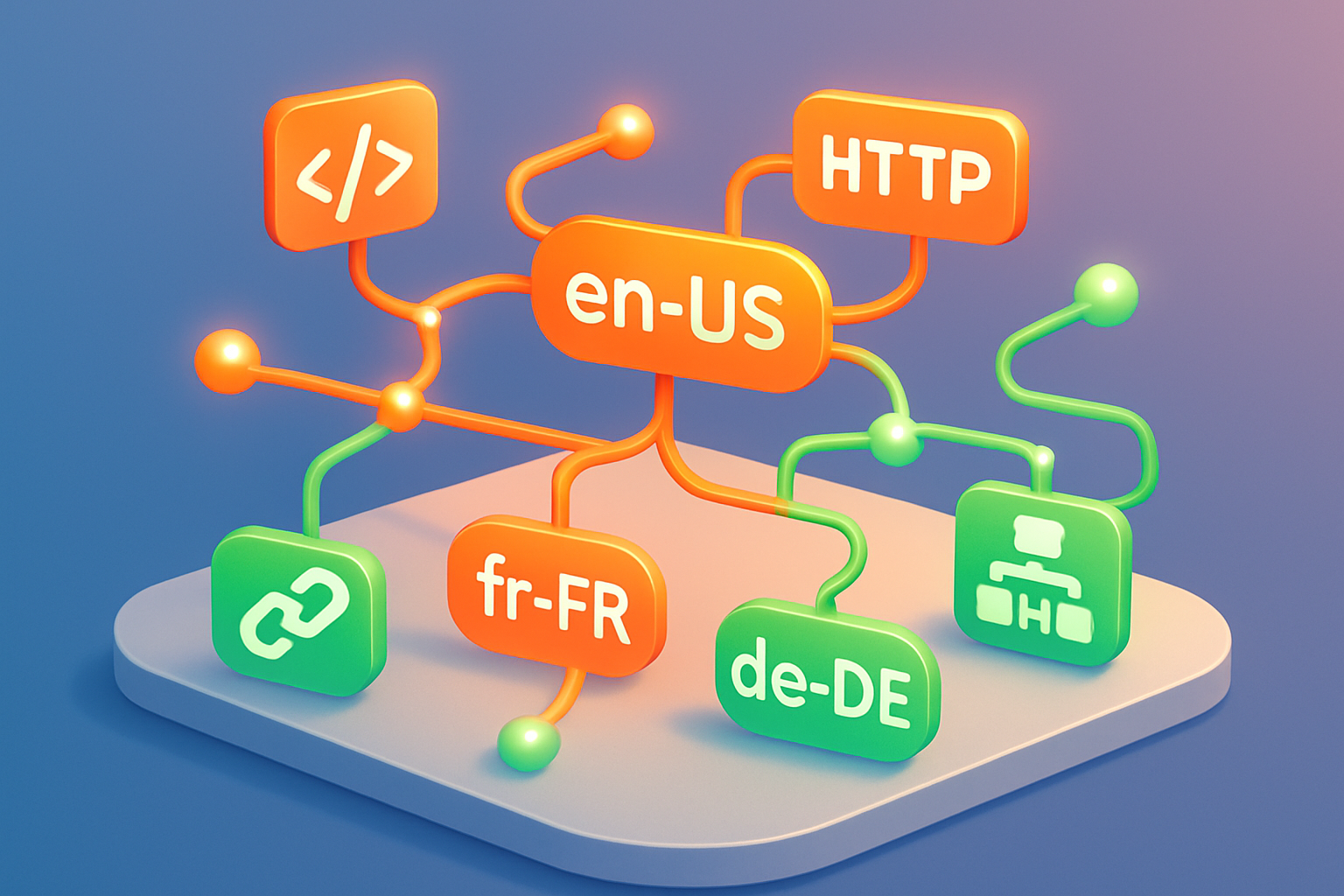Key Takeaways
- A hreflang checker validates language and regional tags to ensure international customers find the correct localized content and AI engines include these pages in responses.
- Common hreflang mistakes include missing x-default tags, unidirectional linking, pointing to non-indexable pages, and incorrect country codes, which can severely harm international SEO performance.
- Using hreflang checkers regularly, especially syncing with Google Search Console, helps identify and fix critical errors quickly, improving international organic traffic by up to 40% within 90 days.
- There are multiple hreflang checker tools available, ranging from free manual options like TechnicalSEO.com to automated, ecommerce-focused solutions like FosterFBA Agentic Checker.
- Proactive hreflang validation and fixing errors promptly can prevent significant revenue loss and boost conversion rates in international markets.
Table of Contents
- Why Hreflang Checkers Are Mission-Critical for Scaling Ecommerce Brands
- The Technical Anatomy of Hreflang, And Where Most Brands Slip Up
- How to Use a Hreflang Checker: Step-by-Step for Ecommerce Operators
- Visual Comparison: Top Hreflang Checker Tools and How They Stack Up (2025 Edition)
- Troubleshooting & Advanced Tactics: Preventing Hreflang Nightmares Before They Cost You Revenue
- Decision Framework: Choosing Your Hreflang Audit Path (Beginner to Pro)
- The Agentic SEO Shift, Why Always-On Hreflang Validation Defines Future-Proof Brands
- Common Hreflang Checker Questions Answered
- Future-Proofing Your International SEO with Always-On Validation
Why Hreflang Checkers Are Mission-Critical for Scaling Ecommerce Brands
Here’s the reality I’m seeing with our 7 and 8-figure brands: 32% of international SEO implementations have critical hreflang errors that literally make localized content invisible to both search engines and AI assistants. When your Shopify store’s French pages can’t be discovered by French customers, or when Perplexity skips your UK product pages because the tags are malformed, you’re bleeding revenue. For brands looking to eliminate these issues at scale, our Programmatic AI SEO & AEO Service offers a comprehensive solution for ongoing international optimization.
I recently worked with a DTC skincare brand targeting en-US, en-GB, and fr-FR markets. Their hreflang tags were unidirectional, meaning UK visitors kept landing on US pages with wrong pricing and shipping info. Result? 17% higher bounce rate and $180K in lost quarterly revenue before we caught it with proper validation. To prevent these costly mistakes, many brands rely on our Ultimate Shopify Agentic SEO Blueprint for step-by-step guidance and automation.
The stakes are higher now. AI-powered answer engines increasingly rely on clean hreflang data to serve the right content to the right audience. Miss this technical foundation, and your international expansion becomes invisible in the age of AI search.
The Technical Anatomy of Hreflang, And Where Most Brands Slip Up

Hreflang tags tell search engines which language and region each page targets using ISO codes (en-US, fr-FR, de-DE). You can implement them three ways: HTML <link> tags in your head section, HTTP headers, or XML sitemaps. Most Shopify brands use HTML tags for simplicity.
| Implementation Method | Best For | Syntax Example |
|---|---|---|
| HTML Tags | Shopify, WordPress sites | <link rel="alternate" hreflang="en-gb" href="https://example.com/uk/" /> |
| HTTP Headers | PDF files, non-HTML content | Link: <https://example.com/uk/>; rel="alternate"; hreflang="en-gb" |
| XML Sitemaps | Large catalogs, automated systems | Nested <xhtml:link> elements within URL entries |
The four mistakes that kill international traffic: Missing x-default tags (your fallback page), pointing to non-indexable alternates, unidirectional linking (page A references B, but B doesn’t reference A), and wrong country codes like “en-FR” instead of “fr-FR.”
In our always-on AI content systems, we’ve automated hreflang validation across 120,000+ pages. The pattern is clear: brands that fix these technical gaps see 15-40% improvements in international organic traffic within 90 days.
How to Use a Hreflang Checker: Step-by-Step for Ecommerce Operators
Step 1: Compile your target URLs, start with high-traffic pages like product collections, bestselling SKUs, and homepage variants across all language/region combinations.
Step 2: Run them through your hreflang checker. I recommend starting with free tools like TechnicalSEO.com for basic validation, then upgrading to automated systems for ongoing monitoring. For ecommerce brands seeking a full-service approach, our SEO & PPC Case Studies showcase how automated validation drives measurable results.
Step 3: Interpret the results. Focus on critical errors first: missing return tags, 404 alternates, and indexability issues. Warnings about missing x-default can wait if you’re resource-constrained.
Step 4: Fix and re-test immediately. For Shopify, add hreflang tags to your theme’s <head> section. For WordPress, use plugins like WPML or Weglot for automated implementation.
Audit frequency: Monthly for stable catalogs, weekly during international launches, and immediately after any template changes. Our agentic SEO systems run these checks continuously, catching errors before they impact traffic.
Visual Comparison: Top Hreflang Checker Tools and How They Stack Up (2025 Edition)
FosterFBA Agentic Checker – Always-On International Validation
Best for: High-growth Shopify and WordPress brands managing 500+ international pages
Our proprietary system combines AI speed with human strategy, running continuous hreflang validation across your entire catalog. Built specifically for ecommerce brands scaling internationally, it integrates with your existing tech stack and catches errors in real-time.
TechnicalSEO.com – Free Manual Validation
Best for: Small catalogs and one-off audits
Solid free tool for basic hreflang checking. Validates bidirectional links and x-default implementation, but requires manual URL input and doesn’t scale for large inventories.
Weglot – Translation-Integrated Checker
Best for: Brands using Weglot for translations
Automatically generates and validates hreflang tags as part of their translation workflow. Clean integration but limited to their ecosystem.
| Tool | Bulk Checking | Automation | Ecommerce Focus | Pricing |
|---|---|---|---|---|
| FosterFBA Agentic | Unlimited | Always-on | Built for it | Performance-based |
| TechnicalSEO.com | Limited | Manual | Generic | Free |
| Weglot | Auto-generated | Within platform | Good | $ |
Troubleshooting & Advanced Tactics: Preventing Hreflang Nightmares Before They Cost You Revenue

The most expensive hreflang errors happen silently. A cosmetics brand I worked with discovered their x-default tags were missing on 300 product pages, only after their UK conversion rate had been bleeding for six months. Once we deployed our agentic automation to fix the tags in under 2 hours, their UK conversion rate jumped 21% the following quarter.
Top 5 Hreflang Errors + Rapid-Fire Fixes
- Non-indexed alternates: Use “noindex” checker alongside your hreflang validator
- 404 return links: Set up automated 404 monitoring for all alternate URLs
- Missing x-default: Always specify fallback language for undefined regions
- Unidirectional tags: Ensure every alternate URL references back to the original
- Wrong country codes: Validate ISO 639-1 language codes before deployment
Advanced operators leverage always-on agents to surface and fix hreflang errors as they happen, preventing six-figure revenue leaks in global markets. This “Traffic Sprint” approach uses automated indexability checks, user-agent simulation, and real-time reconciliation between Google Search Console data and AI engine outputs.
For a deeper dive into optimizing your international campaigns, see our guide on how to optimize PPC campaigns for ecommerce brands.
Decision Framework: Choosing Your Hreflang Audit Path (Beginner to Pro)
Your hreflang checker choice depends on catalog complexity and growth velocity. Brands with under 50 pages can survive on free tools, but scaling ecommerce operations need automated validation that keeps pace with inventory changes and international expansion.
| Brand Profile | Recommended Approach | Key Features Needed | Investment Level |
|---|---|---|---|
| Startup (1-50 pages) | Manual checking tools | Basic validation, GSC integration | Free – $50/month |
| Growing Brand (50-500 pages) | Automated checkers | Bulk scanning, error reporting | $100-300/month |
| Enterprise (500+ pages) | Always-on AI systems | Real-time monitoring, auto-fixes | Agency partnership |
The decision matrix shifts when you consider weekly inventory updates, seasonal campaigns, and multi-region launches. Brands doing $1M+ annually can’t afford manual-only audits, the opportunity cost of missing international traffic during peak seasons far exceeds the investment in automated systems.
To further enhance your international SEO, explore our insights on Amazon listing optimization for global marketplaces.
The Agentic SEO Shift, Why Always-On Hreflang Validation Defines Future-Proof Brands
As search evolves into AI-powered answer engines, proper international targeting becomes even more critical. Google’s AI Overviews and ChatGPT’s shopping recommendations increasingly rely on clean hreflang data to serve localized results. Brands that “set and forget” their international SEO will miss the compounding gains from systematic global optimization.
Next-generation ecommerce brands don’t just audit hreflang quarterly, they deploy always-on content agents with human strategy oversight for continuous international scale. The brands under FosterFBA management have automated over 120,000 hreflang tag checks across $250M in managed revenue, with zero catastrophic errors to date.
Ready to eliminate hreflang errors for good? Our 100-Day Traffic Sprint includes automated hreflang validation as part of our comprehensive Agentic SEO system. See our case studies or download the blueprint to discover how we’re turning AI disruption into compounding growth for ambitious ecommerce brands.
For official documentation on implementing hreflang, refer to Google’s guidelines for localized versions.
Quick Answer: What should you audit monthly?
Check hreflang bidirectional links, verify alternate URL indexability, monitor GSC international targeting reports, and validate x-default tags after any site updates or new market launches.
Common Hreflang Checker Questions Answered

What problems can a hreflang checker actually prevent? Revenue-killing issues like duplicate content penalties across regions, misdirected international traffic, and invisible localized pages that never reach your target markets. A single missed hreflang tag can cost thousands in lost conversions.
Do I really need to tag every page? Tag your most valuable pages first, product pages, category hubs, and conversion paths. For large catalogs, prioritize based on international traffic potential and revenue impact rather than trying to tag everything at once.
Can hreflang solve duplicate content penalties? Yes, when implemented correctly. Hreflang tells search engines that similar content across regions serves different audiences, eliminating the duplicate content confusion that tanks international rankings.
| Situation | Best Hreflang Approach | Checker Requirements |
|---|---|---|
| New international launch | Full site audit + ongoing monitoring | Bulk scanning, GSC integration |
| Existing multilingual site | Error detection + systematic fixes | Advanced validation, automation |
| Rapid catalog growth | Always-on validation system | Real-time monitoring, AI agents |
The key decision point: manual checking works for stable catalogs under 100 pages, but growing ecommerce brands need automated systems that scale with inventory changes and market expansion.
For additional technical background, see the Wikipedia article on hreflang for a comprehensive overview.
Future-Proofing Your International SEO with Always-On Validation
The hreflang checker landscape is evolving beyond simple validation toward predictive international SEO. AI-powered answer engines like ChatGPT and Google’s AI Overviews increasingly depend on clean hreflang data to serve localized shopping recommendations and product comparisons.
Smart ecommerce operators are shifting from quarterly hreflang audits to continuous validation systems. This “Agentic SEO” approach combines AI automation with strategic human oversight, ensuring international targeting stays bulletproof as catalogs expand and markets shift.
The brands thriving in this new landscape don’t just fix hreflang errors, they prevent them entirely through always-on content agents that monitor, validate, and optimize international targeting at machine speed with human strategy behind it.
Ready to eliminate hreflang headaches forever? Our 100-Day Traffic Sprint includes automated hreflang validation as part of our comprehensive Agentic SEO system built specifically for ambitious Shopify and WordPress brands. Explore our case studies or download the blueprint to see how we’re turning AI disruption into compounding international growth.
Frequently Asked Questions
What are the most common hreflang tag errors that can negatively impact international SEO?
The most common hreflang tag errors include missing x-default tags, unidirectional linking between language versions, pointing hreflang tags to non-indexable pages, and using incorrect or unsupported country codes. These mistakes can cause search engines and AI assistants to serve the wrong regional content or ignore localized pages altogether, harming international SEO performance.
How does using a hreflang checker improve organic traffic and prevent revenue loss for ecommerce brands?
A hreflang checker identifies critical errors in language and regional targeting tags, allowing brands to fix issues before they impact visibility. Regular validation helps ensure the right localized content reaches the correct audience, which can boost international organic traffic by up to 40% within 90 days and prevent significant revenue loss from misdirected or invisible pages.
What are the different methods to implement hreflang tags on a website, and which is most effective?
Hreflang tags can be implemented via HTML link elements in page headers, HTTP headers, or XML sitemaps. For ecommerce brands, using HTML link elements is typically the most effective method because it’s straightforward to manage, directly tied to page content, and compatible with most CMS platforms like Shopify and WordPress.
Why is ongoing hreflang validation especially important in the age of AI-powered search engines?
AI-powered search engines rely heavily on accurate language and regional signals to deliver relevant, localized answers. Ongoing hreflang validation ensures these signals remain correct as sites evolve, preventing AI assistants from misrepresenting or ignoring your international content, making it essential for maintaining visibility and growth in global markets.

